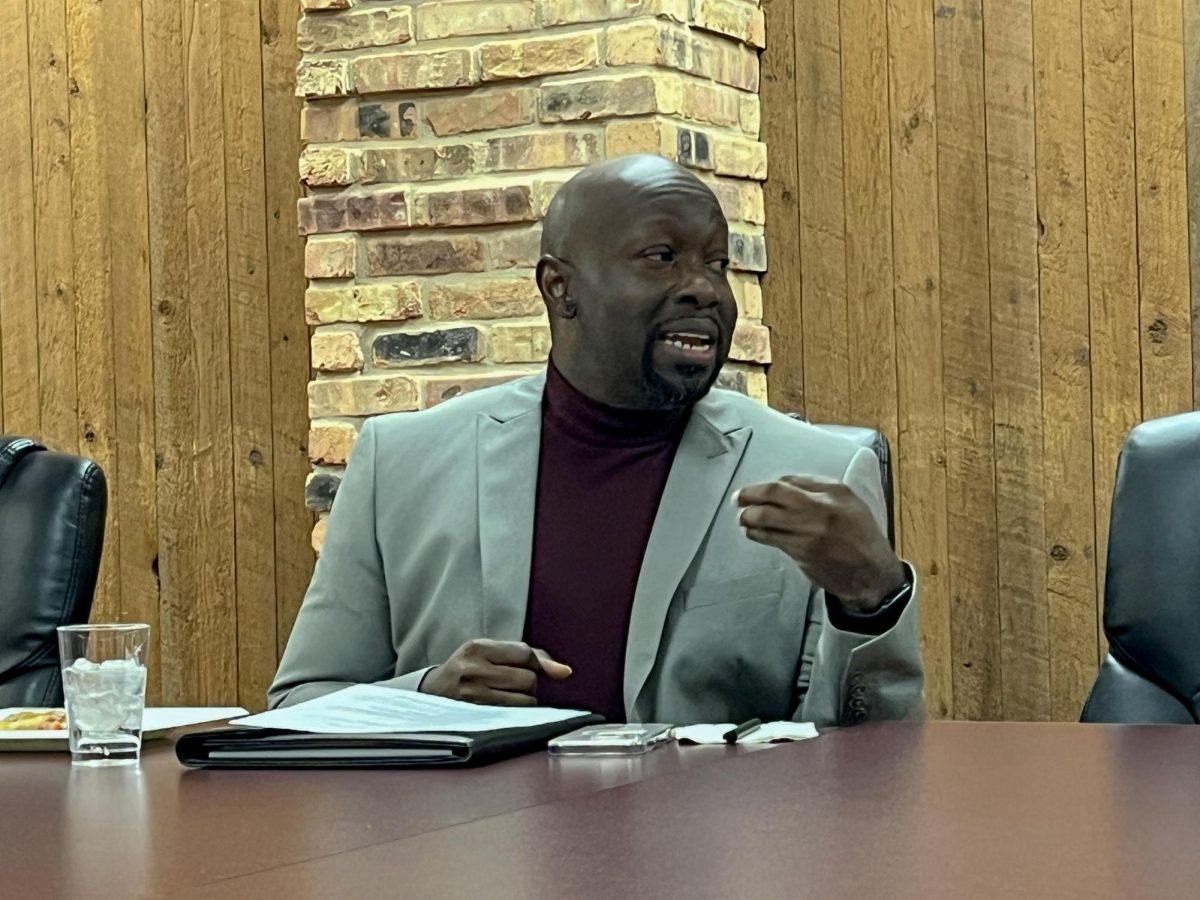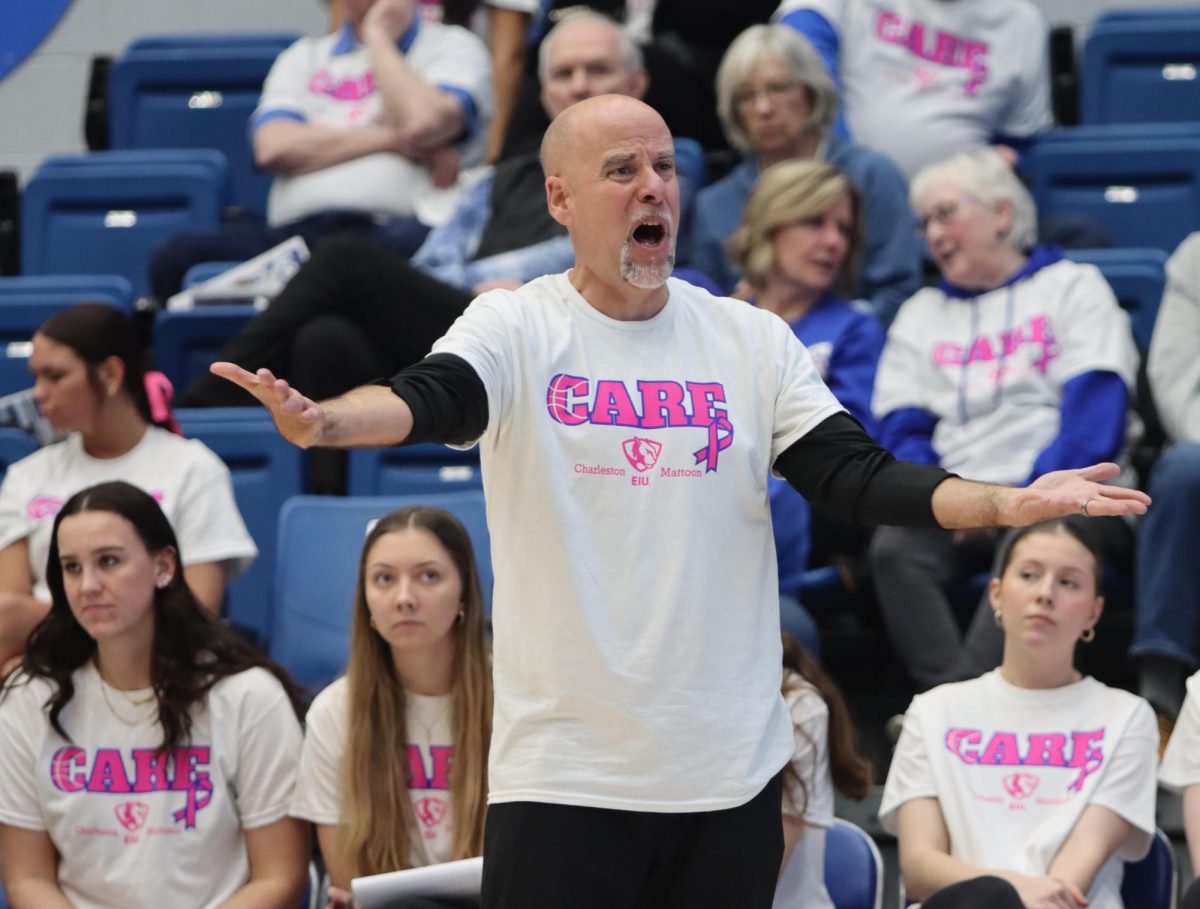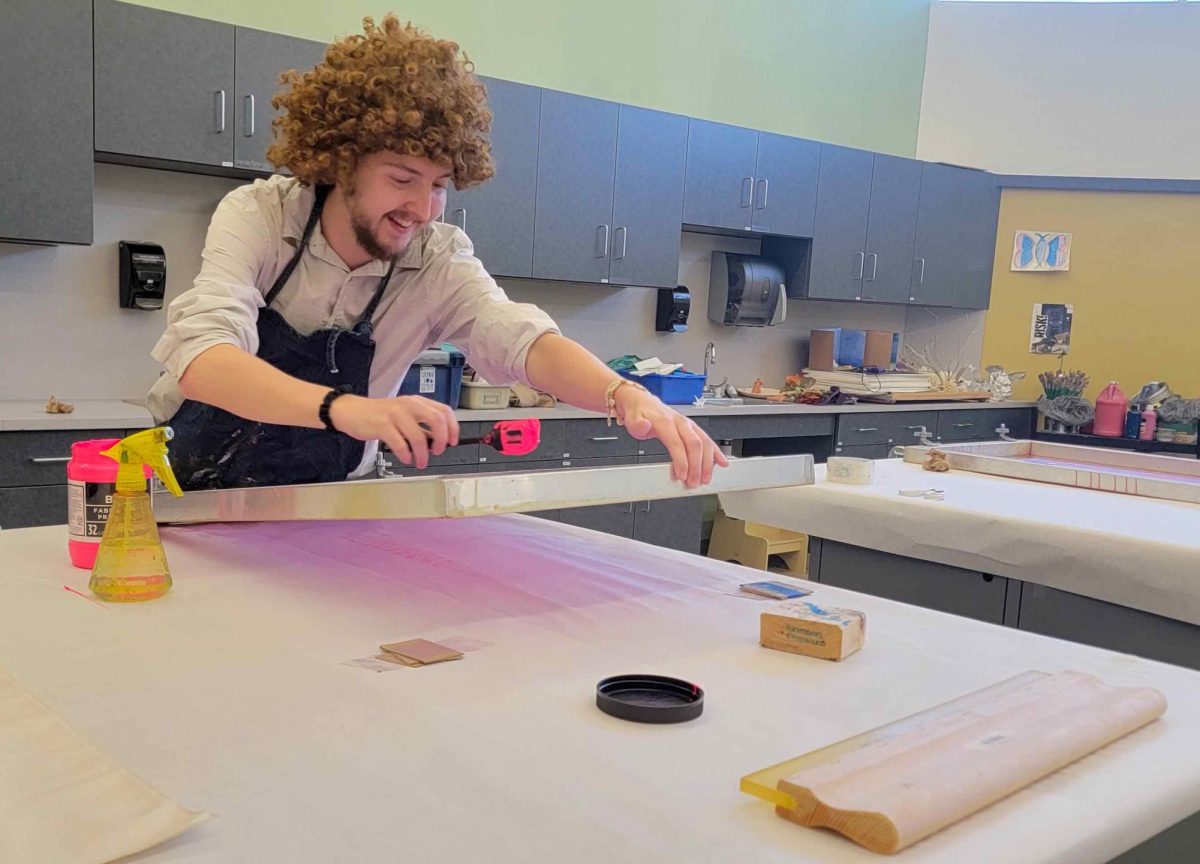Rep. Phillips: In Illinois it’s sink or swim
December 13, 2015
Editor’s note: This is the first of a two-part series investigating the depth to which the Illinois budget impasse has affected local organizations that will resume in January.
As citizens of Illinois wait for legislators to pass a state budget, organizations and institutions that rely on money from the state continue to be affected by the impasse.
The state of Illinois’ total revenue at the current 3.75 percent income tax rate is about $32 billion. Almost one year ago, Michael Madigan, the Illinois Speaker of the House, and Illinois Democrats proposed a budget of about $36 billion, $4 billion more than Illinois takes in.
Gov. Bruce Rauner, Rep. Reggie Phillips and Republican legislators countered with a budget of their own.
“We brought out a balanced budget of $32 billion, which I didn’t necessarily agree with,” Phillips said. “Thirty-two-percent reduction in higher education? Come on, we can’t sustain that.”
Phillips is a local business owner as well as an Eastern graduate and said no one cares more about Eastern than he does.
Phillips said he has been working tirelessly to secure funding for a new life sciences building for the university and has also been seeking ways for Eastern to increase its enrollment.
In Coles County, Eastern, which plays a vital role in the region’s economy, has received a fair amount of attention for struggles it has faced resulting from decreasing enrollment and the lack of a state budget. Yet, numerous organizations throughout the county, including villages, rural fire districts and organizations that provide victim services in Coles, have also been feeling the effects.
To ease the suffering, the Illinois Senate approved a bill on Dec. 2 to fund $3.1 billion in payments to local governments, lottery winners and entities that had not received grant money promised to them for the 2015 fiscal year.
Phillips said Illinois legislators have failed to reach a compromise over tax reform, as well as the two remaining points on the Rauner’s “turnaround” agenda.
“What we’re down to now is term limits and remapping,” Phillips said. “Both of those are wanted by the state of Illinois. And now they’re pushing ‘back us,’ on us. So, if (Madigan) would simply give us those two we could go to a budget, and we could go to what he wants without even reforming our spending.”
Phillips said going to a budget without spending reform is a move he strongly opposes, but he anticipates that Illinois will pass a budget by February or March of 2016.
Paul McCann, Eastern’s Interim Vice President of Business Affairs, said Eastern needs a budget and that he believes, as representative Phillips said, there will be a state budget at some point in time.
“I mean, we do need a state budget. We’re using our reserves to cover the funds that we have not received from the state, and those reserves will eventually run out.”
McCann said Eastern has been using its reserves to support students who haven’t received MAP grant money.
“We have put our money into place so that those kids can go to school and we’re waiting on the money from the state,” McCann said. “We plan on doing that again in the spring so that the kids can still get their education. It’s not their fault that the state hasn’t passed a budget.”
McCann also said Eastern has had to make very few changes because of the lack of state money so far, and the more complicating factor has been a decrease in enrollment.
Over the last four years, Eastern’s enrollment has decreased by about 30 percent. This year, enrollment decreased by 4.5 percent, McCann said.
McCann said Eastern will make it through the school year.
“We have every intention of carrying on and doing what we have to do to educate (Eastern) students, and take care of the community and our employees. We need the state’s support in doing that.”
The HOPE foundation of East-Central Illinois is one local origination that has been hurt by the impasse and is slated to receive funding under the senate bill 2036.
HOPE provides services for victims of domestic violence, such as an emergency shelter, transitional housing and programs for children, education and outreach.
HOPE’S East-Central Illinois office serves about 700 clients per year
Of HOPE’S $700,000 operating budget, 25 percent comes from state and federal grants through the Illinois Coalition Against Domestic Violence, and the remaining 75 percent comes from fundraising efforts and private investments.
Althea Pendergast, the Executive Director of Hope Foundation in east-central Illinois, said it is HOPE’s staff that have been most affected as the organization awaits state funds.
“Anything that’s broken has just had to stay broken: Our roof needs repair, our computers are old and not working properly. Those things have just been put on hold,” Pendergast said. “In addition, the staff has been doing the same amount of work, but not getting paid for it. We’ve been dedicated to not letting this impasse affect the women and children that we serve, so the staff has really been the ones taking the hit.”
To complicate HOPE’s situation, the origination has seen more women from areas farther south as shelters, like one in Olney, have been forced to close because of a lack of state funding.
“We have to keep those doors open,” Pendergast said. “So, we have to have utilities and food and clothing for the women and children that walk in.”
Pendergast said victims of domestic violence feel powerless, and when they can’t get the help they need, they are being made to feel powerless again.
“They are not only being abused by their abuser,” Pendergast said. “They’re also being abused by the systems that are supposed to be helping them.”
While HOPE will receive funding, HOPE’s sister origination, the Sexual Assault Counseling and Information Service, was not included in the bill.
SACIS conducts prevention programs, mandated by state through Aaron’s law and other legislation, in public schools. In addition, SACIS offers legal and medical advocacy, as well as counseling. The group typically serves 300 clients and has an eight-county service area.
A number of Eastern students have worked for SACIS as volunteers and interns. Also, SACIS works closely with the university and has seen a lot of clients from Eastern.
Of SACIS’ $550,000 operating budget, 45 percent is funded by state grants through the Illinois Coalition against Sexual Assault, and the remaining 55 percent is funded by federal grants and local support.
Erin Walters, the executive director of SACIS of East-Central Illinois, said she believes sexual assault centers were originally included in the bill, but were eliminated from the bill’s language at some point in the process.
“So, we were sort of left out of that. I’m happy that they’ve made some progress to allow funding to be released to some agencies,” Walters said. “Domestic violence is hugely necessary.”
Walters said staff at SACIS has had their hours cut by 25 percent, and the organization has had to cut half of its prevention programs.
“Because we don’t have cash flow, we don’t have money to support our travel,” Walter said. “Travel expenses have been cut, which means half the programs we are typically providing within the area… we’ve had to cut programs.”
Also, Walter said SACIS has been accepting donations for office necessities.
“We don’t have any money for supplies… toilet paper, paper towels,” Walter said.
Walters said for the staff, being asked to cut back on services they are passionate about providing is a tough pill to swallow.
“We have a desire to do the work, we have an excellent staff, and the only thing holding us back is money,” Walters said. “That doesn’t seem right, especially in victim services.”
Phillips said he donates his state salary to charity, and would reach out to HOPE.
Phillips said the way to resolve Illinois money problems is through pro-business policies, such as low income and corporate tax rates.
“It changes the face of Illinois,” Phillips said. “It makes people who work to have scraps… It gives them good paying jobs,” Which makes it so they can make decisions based on good paying jobs instead of scraps.”
Phillips said, in order to secure these policies in Illinois, sacrifices must be made.
“We won’t have to talk about grants anymore,” Phillips said. “This will resolve the issue. But if you’re not willing to take some of the pain to get to that point, then… well, it isn’t going to do us any good. We have to go through this in order to get to the other side. You’re either going to swim or you’re going to sink.”
Contrary to Phillip’s comment about a pro-business agenda, according to the Los Angeles Times, Menzie Chinn, a professor at the University of Wisconsin, has shown that the problem with pro-business policies is they don’t really contribute to economic growth.
States that have implemented pro-business policies, such as Kansas and Wisconsin, have lagged behind that national employment average.
According to the U.S. Bureau of Labor Statistics, the national unemployment rate was 5 percent as of Nov. 2015, while Wisconsin’s unemployment rate was 4.3 percent and Kansas’ unemployment rate was 4.1 percent as of Oct. 2015.
Jason Hardimon can be reached at 581-2812 or jrhardimon2@eiu.edu





































































